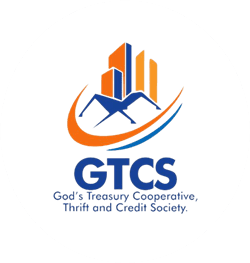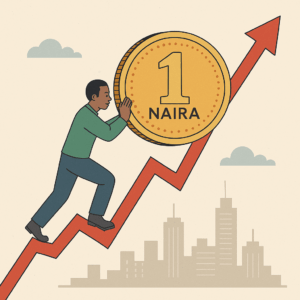Introduction
When we talk about a nation’s economy, we often point fingers at institutions, leaders, and policies. But there’s a truth too often ignored: the economy of a country is only as strong as the economy of its individual citizens. If the average Nigerian is impoverished, the country cannot prosper—regardless of its natural wealth or global potential.
The truth is, no government can fix the economy without the people being part of the solution. Today, let’s confront some hard facts and explore how individual transformation—through production, innovation, and value creation—can collectively restore Nigeria’s economic dignity.
Shortchanging Ourselves: The Exchange Rate Mirror
The Naira’s persistent decline against the US Dollar and other major currencies reflects more than monetary policy failures—it mirrors a deeper imbalance in productivity and economic independence.
Why does the exchange rate remain unfavourable?
- Overdependence on imports: Nigeria imports basic items it should produce—rice, clothes, fuel, and even toothpicks. This outflow of demand places pressure on foreign exchange reserves and weakens the Naira.
- Capital flight: Billions of dollars exit the country annually through overseas education, medical tourism, and lifestyle spending. According to the CBN, Nigerians spent over $40 billion abroad between 2010 and 2020.
- Neglected production sectors: Once-thriving industries like textiles, leather, and agro-processing have been crippled by poor policies and underinvestment.
When we spend more than we earn and import more than we export, we shortchange ourselves—and it shows in our currency.
What Makes Nigeria’s Inflation Unique?

Inflation is a global issue. But Nigeria’s version of it is particularly damaging because it’s rooted in structural problems:
- Policy inconsistency: Frequent changes in trade and monetary policy disrupt investor confidence and economic stability.
- Poor infrastructure: Roads, power, and logistics remain unreliable, driving up costs of goods and services.
- Insecurity: Farmers can’t safely transport or even harvest crops, leading to food scarcity and high prices.
- Corruption and mismanagement: Billions meant for development are diverted or misused, weakening national capacity.
- Overdependence on oil: Nigeria earns over 85% of its foreign revenue from oil. Any global oil price shock affects our entire economy.
Because our economy isn’t diverse, we have few buffers. When prices rise globally, we feel it tenfold locally.
But I’m Not the Government—What Can I Do?
You may not sit in Aso Rock, but you have power.
History and scripture show that individuals—through wisdom, foresight, and obedience—can change the trajectory of nations.
Biblical Precedents: Individuals Who Changed Economic Realities
- Joseph in Egypt (Genesis 41): Sold into slavery, Joseph rose to become Pharaoh’s advisor. Through strategic food storage during years of plenty, he saved Egypt and surrounding nations during a severe famine.
- Mordecai and Esther (Book of Esther): Their wisdom and courage preserved the Jewish people and reshaped the future of Persia.
- The Proverbs 31 Woman: She wasn’t just a homemaker; she was a trader, farmer, and employer—her household lacked nothing.
Each story reminds us: faith + foresight = transformation.
Nations that Rose from Decline
- Post-WWII Japan: After devastation in 1945, Japan invested in education, technology, and manufacturing. In less than 30 years, it became the world’s second-largest economy.
- Germany: After WWII, the “Marshall Plan” (with local discipline and reform) helped rebuild its industrial base. Today, it’s Europe’s largest economy.
- China: In 1978, China introduced market reforms under Deng Xiaoping, allowing private enterprise and encouraging exports. Over 800 million people have been lifted out of poverty since then.
- South Korea: In the 1960s, South Korea was poorer than many African countries. Today, it is a global hub for electronics, automobiles, and innovation, thanks to long-term investment in human capital and industrial growth.
None of these transformations were magical—they were intentional.
What Can You Do Today to Grow Nigeria’s GDP?
- Produce: Whether you’re a farmer, designer, tech developer, or teacher—create value that can be traded.
- Support local: Buy Nigerian-made goods and services. Circulating money locally strengthens the Naira.
- Learn globally, apply locally: Acquire skills like coding, e-commerce, digital marketing—but build Nigerian businesses with them.
- Join cooperatives: Like GTCS, where ethical finance and collaboration help ordinary people grow wealth together.
- Teach the next generation: Pass on values of creativity, integrity, and ownership to young people around you.
- Avoid waste: From food to fuel to funds, manage resources wisely. Stewardship is a spiritual and economic principle.
The Role of GTCS: Building Kingdom-Based Wealth
At God’s Treasury Cooperative Society, we go beyond saving and lending. We are training, supporting, and investing in individuals who want to:
- Launch ethical businesses
- Grow local industries (e.g., farming, fashion, fabrication)
- Participate in real estate and land development
- Build community-based wealth through biblical stewardship
Our mission is rooted in Proverbs 13:22: “A good man leaves an inheritance to his children’s children.”
You don’t need to be a politician to protect the Naira—you just need purpose, discipline, and community.
Nation-Building Is Everyone’sJob
Nigeria will only rise when Nigerians rise.
The future of our currency, our economy, and our children’s prosperity will not be saved by policies alone. It will be built by people who choose to create, not just consume; who choose to sow, not just complain.
As children of God, we are not powerless. We are nation-builders.
Let’s take responsibility.
Let’s revive the Naira—not just with policy, but with purpose.


